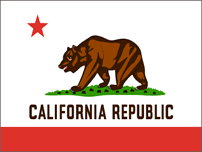
To be published in the upcoming Santa Barbara Independent:
Hurricane Katrina laid bare the deep divisions which continue to plague American society. For days on end, we saw the faces of those left behind in
New Orleans—the dispossessed, the forgotten. The visibility of their plight underscored the existence of an underclass in
America. Let us hope that in the coming years the question of poverty will regain a foothold in public consciousness. The tragedy of
New Orleans was only partially a story of levees and poor planning. It was also the story of how disproportionately such events affect the affluent and the poor. Preventing future disasters means getting serious about fighting poverty.
Like New Orleans, Santa Barbara is home to a large and growing underclass. Our underclass works long hours for low pay, comes disproportionately from communities of color, and relies on public services to fulfill basic needs. Santa Barbara, like New Orleans, is a tourist city, built on a low-wage service sector. At the core of that sector is a stratum of workers who are paid poverty wages, and are often forced to take on more than one job to make ends meet.
Unfortunately, some in our community believe it’s a good thing that Santa Barbara boasts a sizable underclass. They protest loudly whenever anyone suggests that something be done to better people’s living conditions. They oppose increased funding for public transportation, are slow to increase the supply of affordable housing, and most recently, oppose adopting a Living Wage ordinance. This is the philosophy of poverty at work. It’s the idea that our economy should be built on a permanent underclass, a group of people doing the work upon which we all depend. Take, for example, the argument that the Living Wage ordinance will price low-skilled workers out of the market. Implicit in this assertion is the notion that if “the market” dictates poverty wages, workers should be happy to receive them. It goes without saying that it is more expensive for an employer to pay decent wages than to pay next to nothing. The question is, how far do we take this logic? No doubt Nike can hire far more Indonesian workers at one dollar per day than at above-poverty wages. This should not be the framework around which we build our communities.
Radical conservatives and irresponsible employers have used these arguments for decades to fight against minimum wages, health and safety standards, and environmental protection. Raising the bar will cost people jobs, they say, so let’s keep the bar nice and low. In California, these forces have successfully blocked increases in the state minimum wage, which, as a result, has lost 31% of its buying power since 1968. For 22 of the past 31 years, there has been no increase. A recently-released report from the California Budget Project estimates that a working family in California needs to earn more than three times the state minimum wage in order to make ends meet. Governor Schwarzenegger just vetoed a proposed increase.
While state and federal governments turn their backs on the problem of poverty, we have a chance to do something about it locally: pass a Living Wage ordinance. Our proposal is predicated on a basic idea: tax dollars should not subsidize employers who profit from poverty. By allowing contractors to exploit workers, taxpayers pay twice—once for the contract, and again for the services needed to sustain workers making poverty wages. More than social programs or hand-outs, people need and deserve the dignity and opportunities that come with decent wages.
While the Living Wage is not a panacea, similar ordinances have generated proven results at lifting people out of poverty. It’s effective and inexpensive. Living Wage opponents, including News Press pundit Travis Armstrong and Council candidate Loretta Redd, contend that the Living Wage will cost the City millions. This assertion is based on inaccurate conjecture. The real-life experience of cities with a Living Wage ordinance suggests otherwise. According to a comprehensive report by Andrew Elmore, such ordinances have raised contract costs by 0%-0.079% in 14 governmental agencies surveyed. Based on these numbers, the worst-case scenario increases for Santa Barbara’s contract costs would be about $150,000. A city with $70 million in savings can certainly afford that.
Unfortunately, instead of looking to real numbers from other communities, city staff has used bad methodology, fueling fear about the Living Wage financial impact. They are using surveys on what employers would like to charge the City for a living wage, and not taking into account hard evidence that contractors, through the competitive bidding process, absorb most of the increased costs of the Living Wage ordinance. Setting a wage floor for contractors also creates a level playing field for smaller businesses, increasing the pool of potential service contractors.
Instead of the philosophy of poverty, Santa Barbara should seek a higher road. We should regard those who provide vital services—our janitors, roofers, painters, and waste collectors—as integral parts of our community, with every right to demand decent living conditions. The proposed Living Wage level of $12.40 with benefits is barely enough to keep one’s head above water. It is disappointing to see so many city officials and opinion-makers balk at such a commonsense reform. Santa Barbara deserves better.
 It is the duty of all men of good will to resist the spread of tyranny and injustice whenever and wherever it seeks to enslave us. Thank God we have the internet. Blogs provide the perfect forum for such truth speaking. In cyberspace, lonely but heroic defenders of freedom can call attention to their plights, calling needed international attention to grievous violations of human rights that the mainstream media simply ignores. I have found one such website.
It is the duty of all men of good will to resist the spread of tyranny and injustice whenever and wherever it seeks to enslave us. Thank God we have the internet. Blogs provide the perfect forum for such truth speaking. In cyberspace, lonely but heroic defenders of freedom can call attention to their plights, calling needed international attention to grievous violations of human rights that the mainstream media simply ignores. I have found one such website. 












